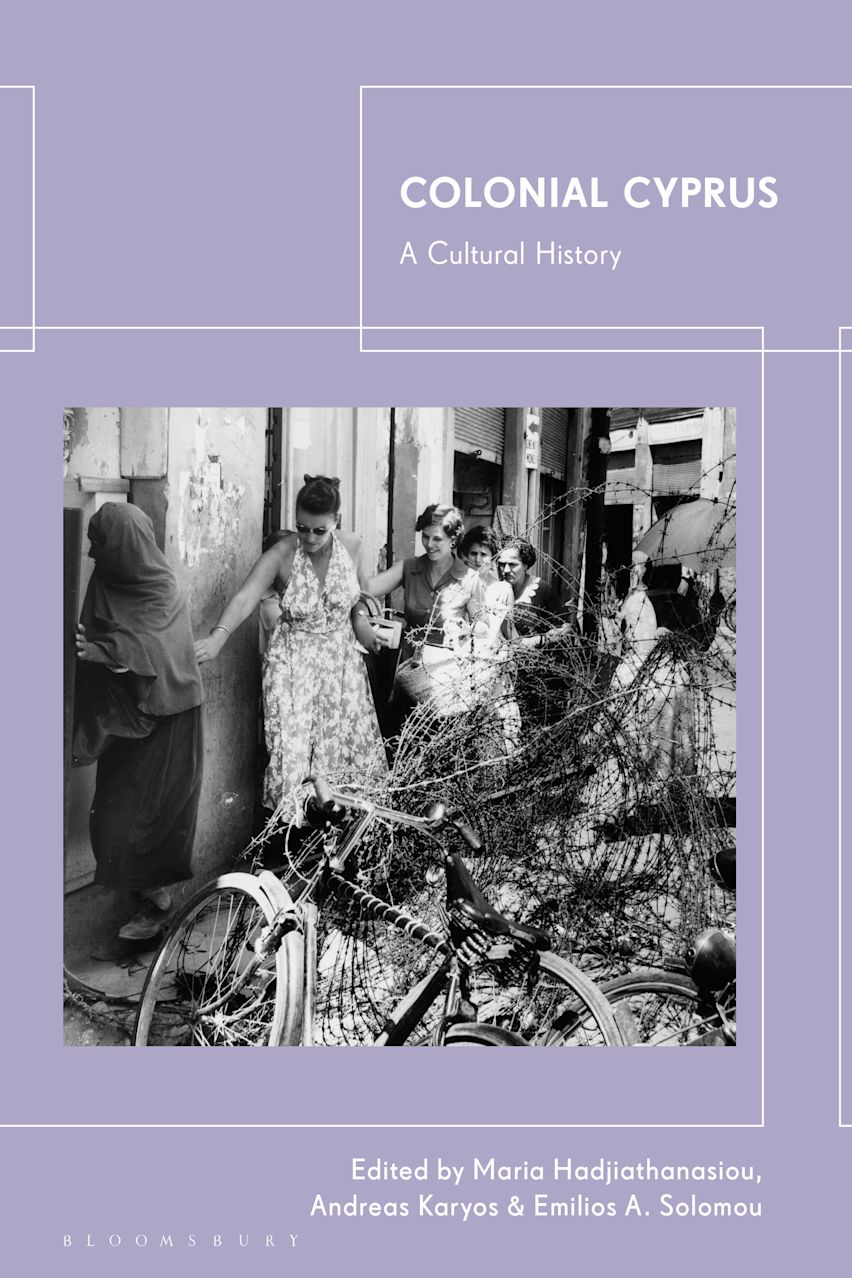This month, we present the book Colonial Cyprus: A Cultural History, edited by our Institute’s Research Fellow Dr. Maria Chatzathanasiou together with Dr. Andreas Karyos and Dr. Emilios Solomou, published by Bloomsbury.
Editors: Maria Hadjiathanasiou, Andreas Karyos, Emilios A. Solomou
Publisher: Bloomsbury (Academic division)
Publication Year: 2024
Description of the Edited Volume and Central Argument
The edited volume *Colonial Cyprus: A Cultural History* (Bloomsbury, 2024) is an original, innovative, and timely study on the cultural history of Cyprus under British rule, offering a new interpretive framework for understanding the island’s (post)colonial past. The volume includes thematic chapters that examine various and diverse aspects of the island’s cultural life from 1878—when Cyprus passed from Ottoman to British administration—up to the establishment of the Republic of Cyprus in 1960. By focusing on the cultural dimensions of Cyprus’s colonial experience, the book highlights the crucial role that cultural activity played in shaping the historical trajectory and present of the Republic of Cyprus. This volume explores how personal perceptions and cultural initiatives contribute in multifaceted ways to the formation of identities. It investigates the symbolic and communicative power of cultural expressions such as the architecture of buildings and gardens, clothing design, commercial posters, photographs, samples of artistic production, and literary expression. These—and other—forms of culture interact with people, in many cases continuing the related dialogue into subsequent historical phases. The analysis also extends to the impact of historical non-mainstream actors (or potential protagonists who have so far been overlooked), such as architects, botanists, and artists, who left their mark on the natural landscape and printed material.
Original Features of the Edited Volume
The volume features original chapters contributed by women academics, researchers, artists, and curators—professionals from related fields with substantial and notable engagement in academia and the cultural sector, both in Cyprus and internationally. The book is therefore, by definition, interdisciplinary, bridging research approaches and drawing on theoretical frameworks and primary material from fields such as History, Archaeology, Photography, Cultural Policy, Literature, Theatre, Visual Communication and Advertising, Fashion, among others—all through the lens of Cyprus’s modern history, which includes the end of British colonialism and its decolonization. The chapters bring to light unpublished archival material in both Greek and English, including written and visual sources from state and private archives. Prior research on the topics covered in the volume had mostly been published in article form and, to a much lesser extent, as monographs. All these features make this volume the first of its kind.
Who Is the Book For and What Does It Offer the Reader?
Anyone interested in the modern history of Cyprus, the history of colonialism and decolonization, cultural history, visual culture, and identity studies will benefit from reading this book. More specifically, university students in fields such as History, International Relations, Cultural Studies, Communication and Media Studies—as well as researchers, analysts, international relations experts, and history enthusiasts—can use this book as a reference point for both the topics it covers and for its primary sources and bibliography. The fact that the book is published in English makes it readily accessible to a broader readership, thereby facilitating the connection between colonial Cyprus and other former colonies—whether of the British Empire or other empires. The edited volume offers, for the first time, interpretations of traditionally unexplored or understudied topics in Mediterranean and Middle Eastern history (in comparison, for example, with the cultural histories of India or Commonwealth countries such as Australia), such as the history of public gardens as spaces of control and resistance, or fashion as a form of passive resistance under British rule—approached through an interdisciplinary lens.
What Are the Aims of the Edited Volume?
The editors aspire for this volume to find its place within the broader historiography of colonial Cyprus and the British Empire. This aim includes fostering meaningful connections with the cultural histories of other formerly colonized peoples. Additionally, the editors seek to engage in productive dialogue with a variety of stakeholders, aiming to contribute to the critical reflection on the past in ways that are meaningfully relevant to the present and future. In this volume, the contributors chart new intellectual territory, boldly forging a new path for the writing of Cyprus’s colonial history. Drawing on original research, they outline new directions for scholarly inquiry. The editors and authors of the volume extend an invitation to readers to join them on this intellectual journey—observing, exploring, documenting, analyzing, interpreting, and engaging in dialogue through creative and innovative approaches.
Link: https://www.bloomsbury.com/us/colonial-cyprus-9780755640652/
Note: Those interested in purchasing the edited volume may contact Maria Hadjiathanasiou for a significant discount.





